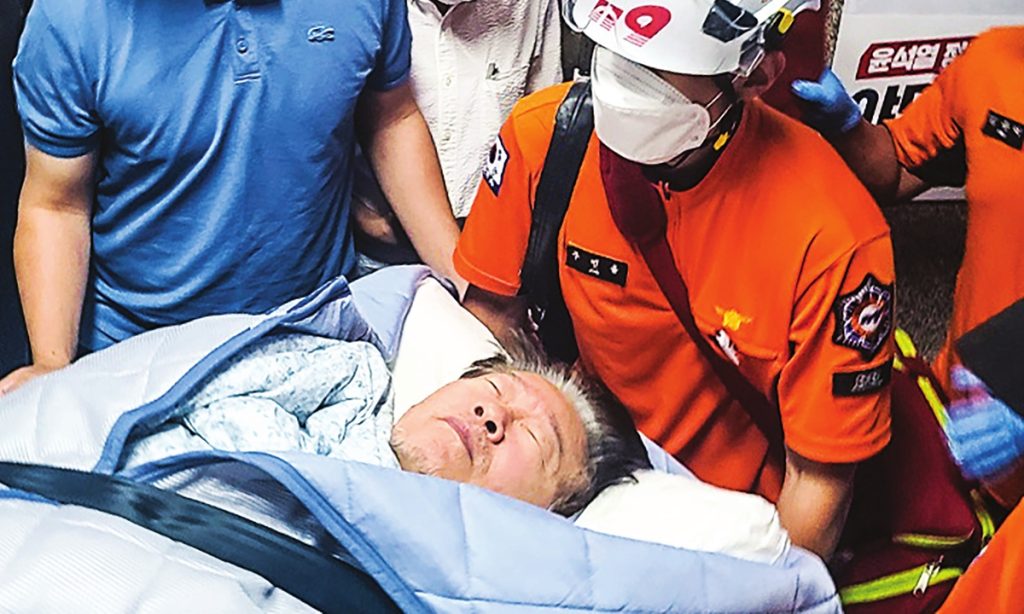Yoon faces more obstacles to governance amid polarized partisan conflict in South Korea

Since President Yoon Suk-yeol took office, it seems that the dangerous side of South Korea's politics has become prominent. This is reflected not only in foreign affairs, such as the increasingly hostile and confrontational approach toward China, but also in domestic affairs, where partisan conflict has become intensified and polarized, potentially creating more obstacles for Yoon's governance.
On Monday, South Korean prosecutors requested an arrest warrant for the leader of the main opposition Democratic Party of Korea (DPK), Lee Jae-myung, on suspicion of various charges, including fraud and bribery. Earlier that day, Lee was hospitalized after 19 days of a hunger strike in protest against government policies.
So far, the DPK leader has been summoned for prosecution questioning five times after last year's presidential election, and he claimed all the allegations were fabricated. Seoul and the ruling conservative party's tough stance toward Lee has become increasingly obvious. In last year's election, Yoon was elected by a narrow margin of 0.73 percentage points over the DPK leader. This means that the popular mandate of Yoon's governance is not quite strong.
South Korea's politics has become chaotic. What happened to Lee is not an isolated incident, but a reflection of the intensifying partisan conflict in South Korea and people's dissatisfaction with the Yoon administration over many issues. In particular, Seoul has demonstrated utterly unprincipled support for Tokyo regarding Japan's dumping of nuclear-contaminated wastewater into the sea, which has triggered anger among South Koreans.
In fact, politicians who engage in partisan conflict in South Korea fight more for the interests of their respective political parties and the chaebol groups behind them. Moreover, as a result of political polarization, it becomes difficult for parties in the country to find any common ground to cooperate. Under such circumstances, the Yoon administration may remain stuck in troubled waters.
A new poll released by Realmeter on Monday shows that 61.8 percent of respondents - a recent record high - viewed the governance of the Yoon administration as poor, while only 35.5 percent favored it. Meanwhile, the support rate of the PPP dropped 1.5 percentage points to 35.3 percent and the DPK's rose 1.8 percentage points to 46 percent. Clearly, the Yoon administration and the ruling party are facing a slump.
It is easy to find the reasons behind Yoon's poor governance. In addition to a series of scandals involving people close to Yoon, the South Korean president should blame himself for making mistake after mistake in specific policies since he came to power.
Economically, a series of measures taken by Yoon to boost the economy are yet to take great effect, leading South Koreans to feel more hopeless for economic recovery. The situation is even worse in terms of foreign policy. The Yoon administration completely disregarded the well-being and interests of its own people, easing its relations with Japan without any principle and even seeking to pander to Japan, and this has caused a huge backlash at home. The current approval rate of 30-something percent comes most likely from the base voters of Yoon and the PPP, and it is almost impossible to grow as Seoul and the ruling party have lost the trust of the centrists.
South Korea will expect legislative elections in April next year. All the parties and politicians are going to be competing for the approval of the voters, while highlighting the mistakes and shifting the blame on their opponents. In short, the partisan conflict in South Korea, especially the one between the PPP and the DPK, is only going to become more and more intense as the elections approach.